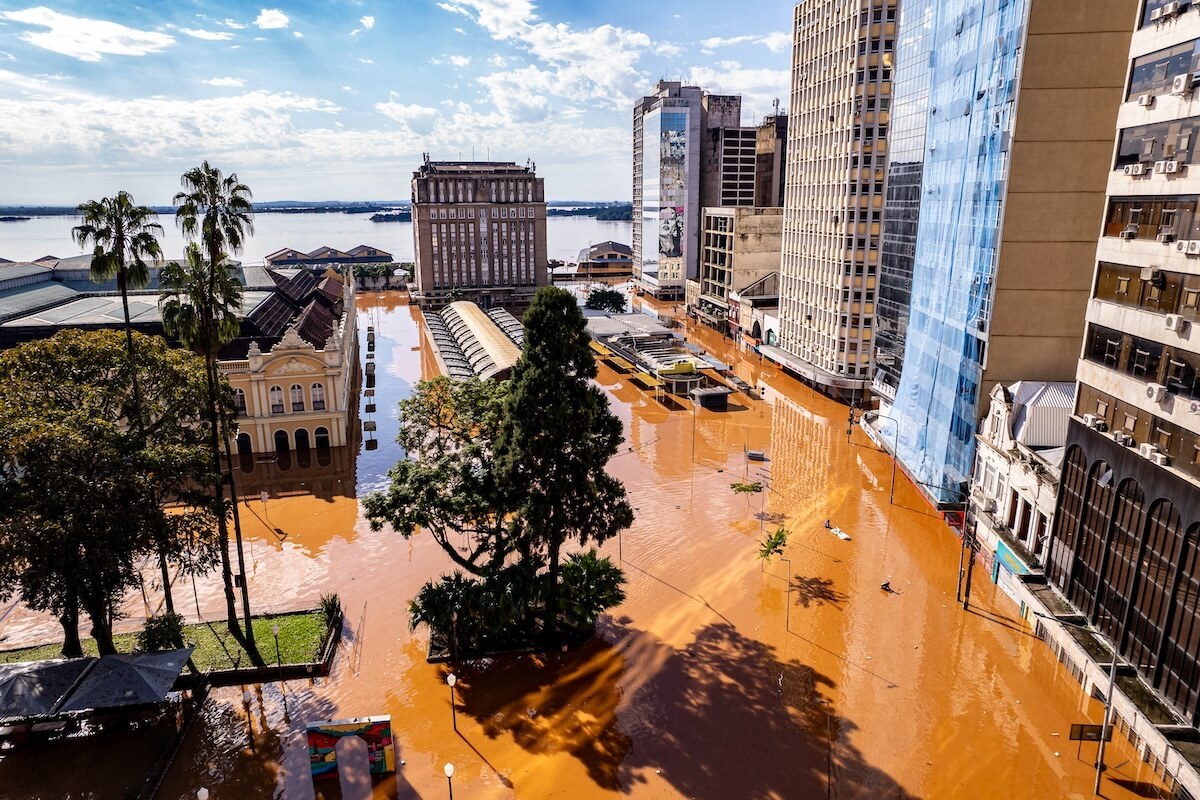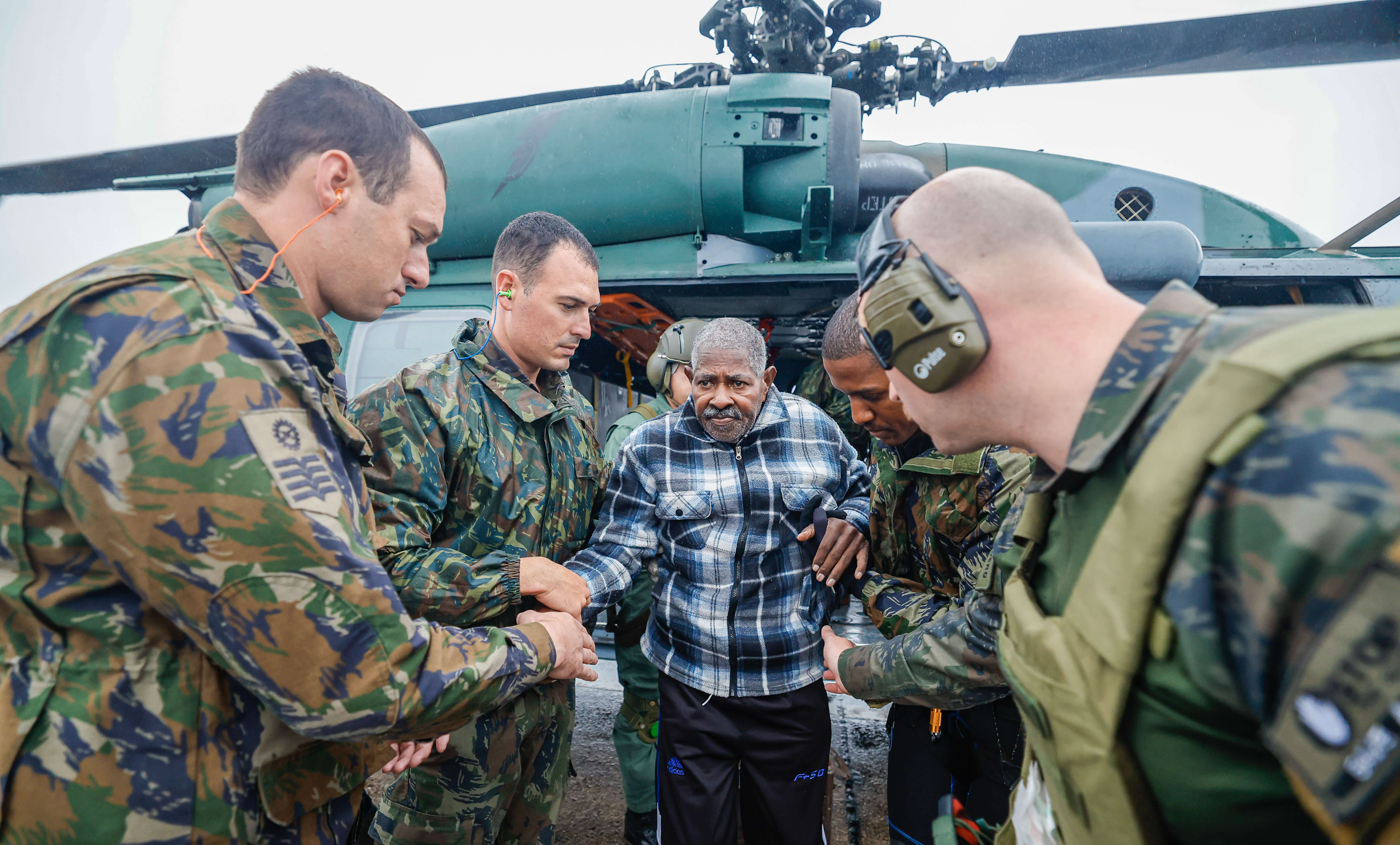As South grapples with floods, President Lula sounds alarm on climate crisis
The Brazilian Government's actions to support flood victims in Southern Brasil have already mobilized 14,500 professionals, including 13,600 military staff. Initial actions have focused on rescue, food security, and social assistance measures. Over 46,000 rescues have been carried out. The Brazilian President coordinates efforts and underscores the integration of powers and the urgency of tackling climate change.

Brasil’s Federal Government has played a crucial role in assisting the state of Rio Grande do Sul, hit heavily by the rains, mobilizing more than 15,000 professionals in various areas. The Armed Forces are part of the operations, with more than 13,000 military staff in action, carrying out air and land rescues, evacuations, and transporting food. These measures reflect the urgency of tackling climate challenges, one of the main agendas of Brasil’s G20 Presidency. Since the beginning of its term ahead of the international cooperation forum last year, Brasil has raised the issue as a priority for debate in Working Groups and created the Global Mobilization Task Force against Climate Change.
Amid the rescue operations, the Federal Government has focused on providing a coordinated and effective response to ensure food security and social assistance measures for the population affected by the climate calamity. Actions are coordinated by a monitoring office set up in Brasilia, the capital city. The integrated work includes rescue, assistance, mitigation, and adaptation measures to face the challenges posed by climate change and strengthening warning systems.
Tragedy numbers in RS
According to Civil Defense, 380 municipalities have been affected, with the greatest impact on the capital Porto Alegre, and municipalities in the Metropolitan Region: more than 46,000 people have been rescued so far through the work of over 15,000 soldiers, police officers, and agents. The logistics mobilize 42 aircraft, 243 boats, 2,500 police cars, and engineering equipment. 45,237 people are in shelters and 130,000 have lost their homes, out of a total of 924,000 people directly affected by the effects of the climate disaster. Eighty-five deaths have been confirmed and 134 people are reported missing. The bulletin also records the rescue of 4,300 animals.
The public security forces mobilized for this emergency operation consist of personnel from the Federal Highway Police, the Federal Police, and the National Force. A total of 734 police officers and firefighters are actively engaged in the response effort. The logistical support comprises four helicopters, 48 specialized vans, 20 police vehicles, rescue boats, trailer cars, trucks, jet skis, and a fuel tank truck.
Collaboration among the three branches of government is deemed essential in effectively addressing the challenges brought about by flooding. By working together, these branches can provide a unified and coordinated response to the pressing needs of the affected populace, facilitating the swift allocation of resources and the enactment of measures crucial for the relief and rehabilitation of the impacted regions.
The teams are actively engaged in a range of critical tasks, including communication support, rescuing individuals displaced or rendered homeless by the rain, conducting search and rescue operations for the missing, assessing engineering structures, clearing obstructed roads, assisting in the setup of sorting stations and emergency shelters, providing logistical support through airlift operations, managing donation centers, and transporting and distributing essential supplies. Additionally, they are offering medical and dental care and working to restore vital services.

Health care
Health professionals from the National Force of the Unified Health System (SUS) have been deployed to Rio Grande do Sul, significantly enhancing the capacity to rescue individuals with critical health needs and improving overall survival rates. Efforts are underway to coordinate and integrate actions and priorities across the public and private hospital network. In a swift response, the federal government has announced the immediate allocation of BRL 580 million in individual parliamentary amendments for direct utilization across 448 municipalities in Rio Grande do Sul, with the majority earmarked for the health sector, totaling BRL 538 million. Additionally, a field hospital has been established and is already operational in the municipality of Estrela, situated in the Taquari Valley, one of the hardest-hit regions.
President Lula visits affected areas and coordinates actions
President Luiz Inácio Lula da Silva, joined by the President of the Senate, Rodrigo Pacheco; the President of the Chamber of Deputies, Arthur Lira; the President of the Federal Court of Accounts, Bruno Dantas; and Justice Edson Fachin of the Federal Supreme Court, along with 13 government ministers, symbolized national unity in the efforts for relief and reconstruction in Rio Grande do Sul. Emphasizing the essential role of collaboration among federal, state, and municipal authorities, the head of the Executive branch underscored the need for integrated efforts to tackle the challenges posed by the floods.
Lula underscored the importance of proactive planning to prevent future climate-related disasters. "Bureaucratic hurdles will not impede our efforts to restore this state to its former glory," he declared during a press conference held in Porto Alegre, the capital of Rio Grande do Sul.
Collaboration among the three branches of government is deemed essential in effectively addressing the challenges brought about by flooding. By working together, these branches can provide a unified and coordinated response to the pressing needs of the affected populace, facilitating the swift allocation of resources and the enactment of measures crucial for the relief and rehabilitation of the impacted regions.
In a meeting last week at the Santa Maria Air Base, a city also affected by the floods in the Southern state, President Lula highlighted the importance of acknowledging nature's signals, warning about the significant losses that can occur when it acts unexpectedly. "Nature is expressing itself, and we need to take this very seriously, because when nature rebels, we know that the losses are huge,'' he stated.